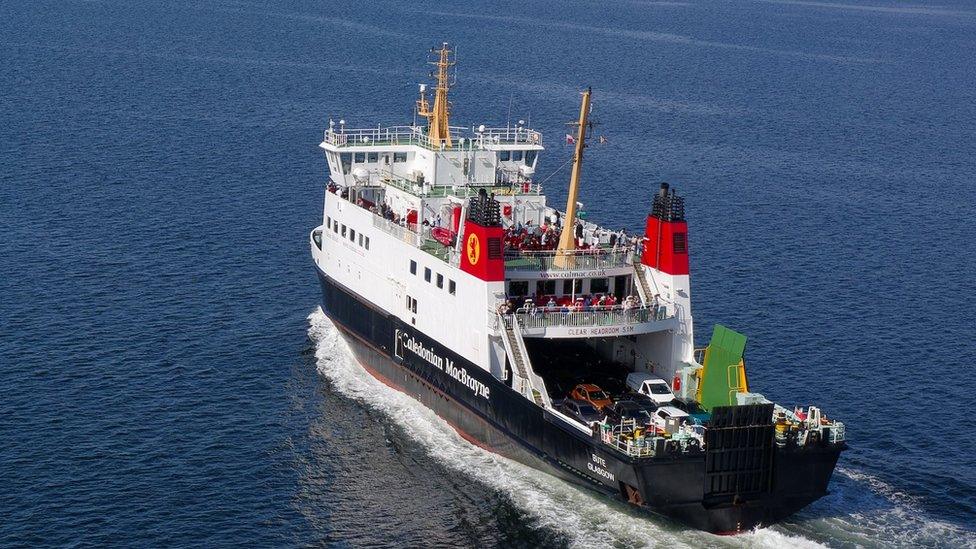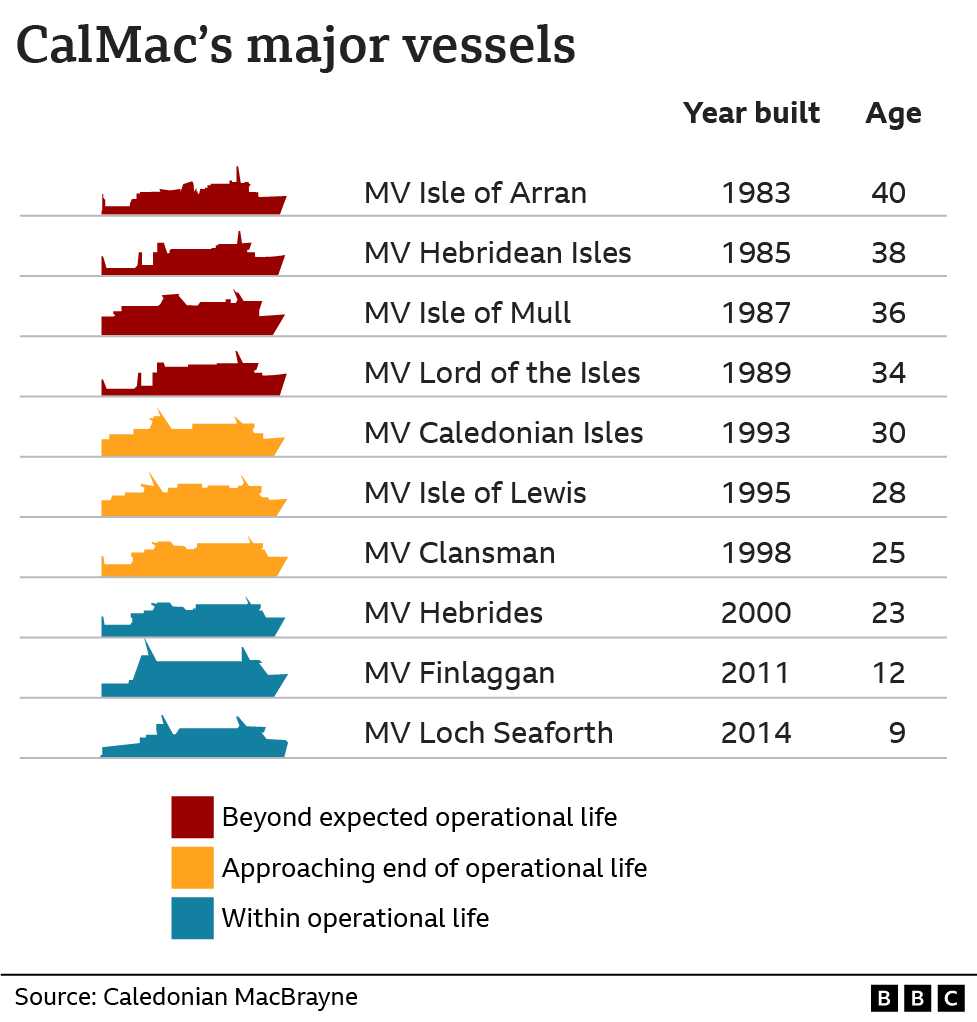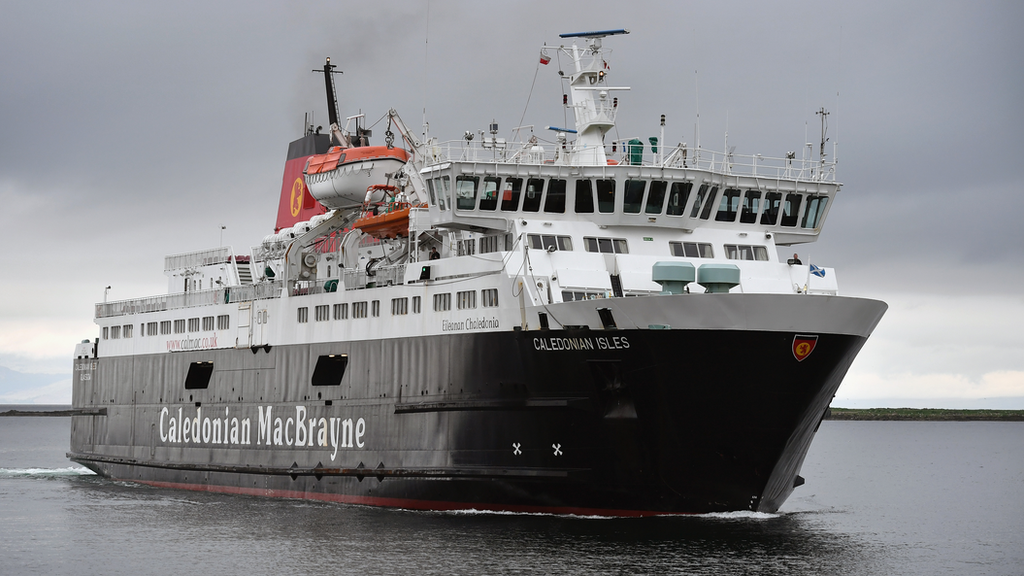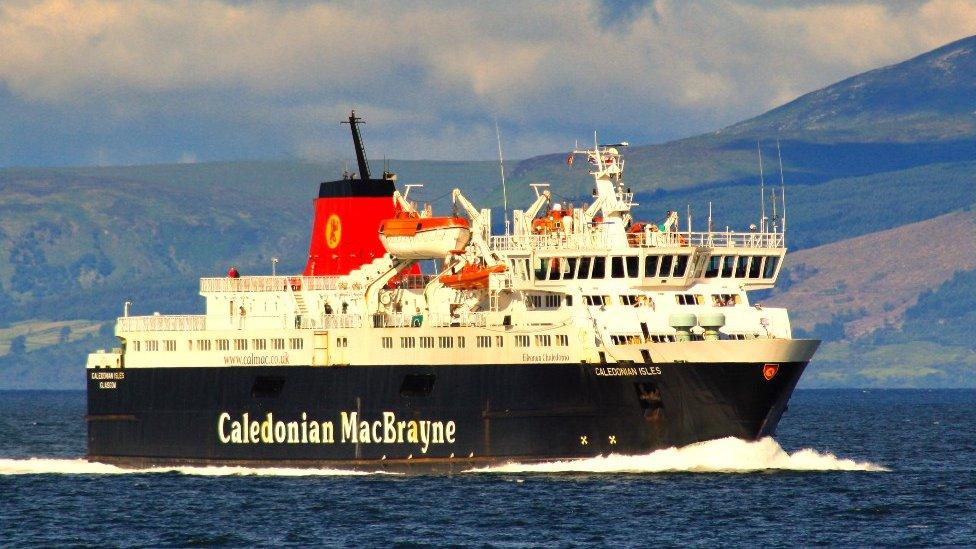Disruption continues after CalMac's biggest ferry hit by technical fault
- Published

Islanders are facing more ferry disruption after CalMac's biggest ship was hit by a technical fault.
CalMac said MV Loch Seaforth, the newest large ferry in its fleet, had developed problems with its engine control system.
All Tuesday sailings between Stornoway and Ullapool were cancelled as well as some journeys on Wednesday.
Three other CalMac large vessels are currently out of action after problems were discovered during overhauls.
MV Caledonian Isles, MV Hebridean Isles and MV Clansman have not been in service since the summer timetable began on 1 April.
CalMac said its engineers were investigating the fault on Loch Seaforth and hoped to resolve the issue "as soon they possibly can".
On Wednesday morning, it said contractors were "onboard the vessel working on resolving the issue".
The fault became apparent during a crossing to Ullapool late on Monday afternoon.
All sailings since then have been cancelled, including Tuesday's overnight freight services and the 07:00 and 10:30 sailings on Wednesday.
The firm said additional sailings would run between Uig and Tarbert due to a "backlog of traffic".
On Tuesday, a spokesperson said that these sailings would give priority to services such as food, medical supplies and time-sensitive loads.
They added: "We are very sorry for the disruption and inconvenience that this technical fault is causing to our customers, and we are grateful for their patience.
"We will continue to contact them directly or through updates through the usual social media channels."
An update on the 17:30 service from Ullapool is scheduled for 14:00.

Transport Minister Kevin Stewart said: "Unfortunately there have been ongoing technical issues with vessels resulting in delays to the annual overhaul programme and cancellation of sailings.
"The expertise and responsibility for operational decisions regarding the Clyde and Hebrides Ferry Services lies with CalMac as the operator, but we recognise this issue is not just about transport performance in itself - it's about delivering the confidence needed to sustain island populations.
"Regrettably communities have been greatly impacted and we fully recognise the need to improve reliability and confidence in services."
He said the Scottish government had invested more than £2bn it ferry services since 2007, and had outlined plans to invest about £700m in a five-year plan to improve ferry infrastructure.
Mr Stewart added: "Since May 2021, we have bought and deployed an additional vessel in MV Loch Frisa in June, chartered the MV Arrow and MV Alfred, commissioned two new vessels for Islay, progressed investment in essential harbour infrastructure, and now we are delivering a further two new Islay-class vessels."
Island concerns
Island communities have warned they are facing significant economic harm, with many businesses dependent on tourism.
Last month Robbie Drummond, the chief executive of the state-owned ferry operator, admitted the next two years would be "challenging" for island residents due to the age of the CalMac fleet.
A third of CalMac's ferries are more than 30 years old, and about half of its largest ships are beyond their expected service life.
The renewal of the fleet has been hit by delays with the build of two ships at Ferguson shipyard in Port Glasgow, but critics say a longer-term failure to invest in new ferries is also to blame.
Four other large vessels destined for the Islay and Western Isles routes have been ordered from a shipyard in Turkey, but the first will not be delivered until late 2024.
While Loch Seaforth is a modern vessel, having entered service in 2015, it suffered a major engine failure in 2021.
A report later suggested that a failure to replace piston screws during maintenance may have caused the breakdown.
There has been further ferry disruption on a route operated by Highland Council between the Ardnamurchan peninsula and Corran.
A reduced service has been in operation since January while repair work is carried out on the small ferry, MV Corran.
However after the relief vessel, the Maid of Glencoul, broke down on Friday., the council warned there could be no service for several weeks.
- Published5 March 2023

- Published13 May 2022
